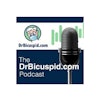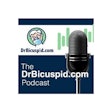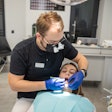
NEW YORK (Reuters), Sep 3 - Jurors heard sharply different closing arguments on Wednesday in a trial over whether or not Merck & Co.'s Fosamax drug treatment for osteoporosis caused a Florida woman's jaw damage.
The trial in New York is Merck's first out of some 1,280 plaintiff groups involving almost 900 cases over U.S. lawsuits by patients who claim Fosamax caused the condition known as osteonecrosis of the jaw, or ONJ.
"It is a theory ... it is a theory without scientific basis," Paul Strain, an attorney for Merck, told the eight jurors in Manhattan federal court before they started deliberating on Wednesday in the three-week-long trial.
Strain told the jury that "there must be scientific proof, not 'maybes' that Fosamax causes ONJ" before they could rule in favor of 71-year-old Shirley Boles from Walton Beach, FL, who sued the drug maker for damages.
Her attorney, Timothy O'Brien, said in his closing argument to the jury that there was enough evidence at trial from doctors showing Fosamax damaged Boles, who looked frail as she sat in court between her lawyers.
O'Brien said Merck should have investigated reports of ONJ.
"This is an extremely rare event that could be a signal and triggers a duty to investigate," O'Brien said.
"It is a corporate failure, a failure of the system in which you accept the evidence that is good for you and ignore the evidence that is bad for you," O'Brien said.
Fosamax, approved in the U.S. in 1995, belongs to the bisphosphonate family of osteoporosis drugs that include Procter & Gamble's Actonel and Roche Holding AG's Boniva. Merck says the pills prevent bone fractures -- particularly in postmenopausal women -- by helping to increase bone mineral density.
In 2003, reports first surfaced linking intravenous bisphosphonate treatments with jaw osteonecrosis, meaning death of jawbone tissue that can include symptoms such as pain, swelling or infection of the gums and jaw, gums that don't heal, and loose teeth.
Intravenous bisphosphonates, which are not made by Merck, involve higher concentrations of medication that are typically used to treat patients with cancer that has spread to the bones.
Oral versions of the class of drugs were initially thought to be safe until a report came out in May 2005 showing that 7 of 63 bisphosphonate users who developed the condition had been using oral forms.
But an informal review in the Journal of the American Dental Association in early 2008 suggested that oral treatments instead reduced risk of inflammatory deterioration of the jaw in patients with osteoporosis. By contrast, the report suggested a fourfold increase in such risk among patients taking intravenous bisphosphonates.
The case is In Re: Fosamax Products Liability Litigation 06-md-01789 in U.S. District Court for the Southern District of New York (Manhattan).
By Grant McCool
Last Updated: 2009-09-02 16:41:23 -0400 (Reuters Health)
Copyright © 2009 Reuters Limited. All rights reserved. Republication or redistribution of Reuters content, including by framing or similar means, is expressly prohibited without the prior written consent of Reuters. Reuters shall not be liable for any errors or delays in the content, or for any actions taken in reliance thereon. Reuters and the Reuters sphere logo are registered trademarks and trademarks of the Reuters group of companies around the world.



















